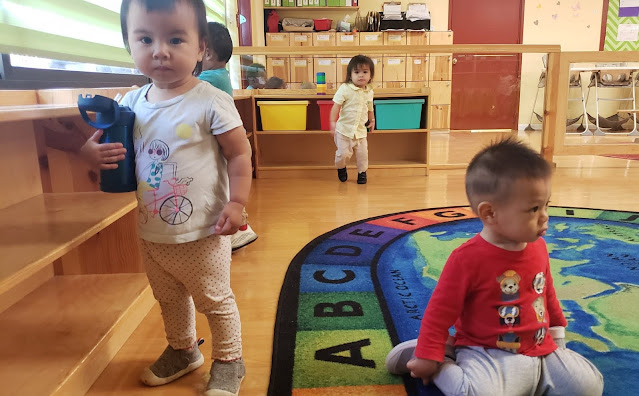Tips for parents on handling challenging behaviors in kids

Buena Park Montessori is an educational institution that follows the Montessori philosophy, focusing on the development of the whole child through a student-centered approach. They offer programs for infants, toddlers, and preschoolers, providing a nurturing and stimulating environment for children to explore and learn at their own pace.

Let's read it out:
Active
listening
Children who listen actively feel
heard and understood. You may demonstrate that you are interested in what your
youngster is saying and genuinely care by using supportive gestures like
encouraging smiles and nodding in agreement. To help your child feel more at
ease and connected to you, try to lower yourself to their eye level when they
talk to you.
Ask them "What?"
"Why?" and "How?" can prove that you are paying proper
attention when your child says something. By showing your child how to tell a
tale and what details to include, you are also assisting them in developing their
communication abilities.
Pick up on
the emotion
Pay attention to the emotion when
your child displays it in their words or body language. Commenting or restating
what you hear them say can be helpful quite a bit of the time. This
communicates to them that you value their sentiments and are paying attention
to them. You may respond, "You are upset with it because I would not let
you play outside at night?" for example. These open-ended questions allow
your kid to reply by confirming or elaborating on their feelings, which frequently
leads to more discussion.
Share your
thoughts
Be honest with your kids about your
opinions of them. For instance, ask the kids their opinions if you're trying to
decide how to organize the living room. This can be accomplished by posing a
query along the lines of, "I am having trouble thinking out what to place
where. What do you believe will be most effective there?
Conclusion
These are some tips for you to
communicate with your child in a better way. We hope it will work for you, but
the list does not end here. The Montessori
La Palma CA team suggests you always answer your child in two ways to
communicate and get involved in the conversation for a healthy relationship.
Rather, if you are a working parent and you don’t have enough time to invest in
your child, you can connect with us for better care for your child.
Comments
Post a Comment